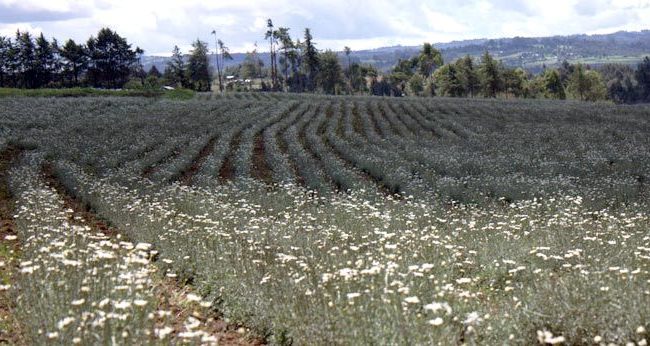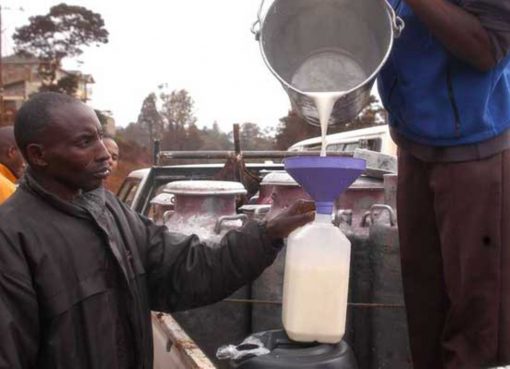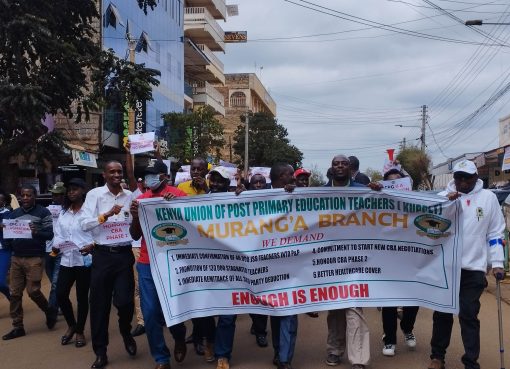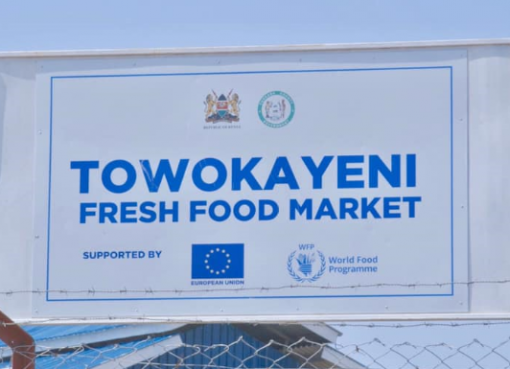Efforts to revive the pyrethrum sector received a major boost after the County government of Nakuru distributed 500,000 seedlings to farmers in Kuresoi North Sub-County.
Governor Lee Kinyanjui, called on the 18 pyrethrum growing counties in Kenya to ensure that farmers get quality and certified planting material as a way of revitalizing the sector, which he noted had the capacity of earning the country Sh5.8 billion annually from sale of refined pyrethrin extract.
Currently, the country controls a paltry one per cent of the global market share, down from the 80 per cent it had and which has since been taken over by Australia, Rwanda and Tanzania.
Speaking at the County headquarters, Mr Kinyanjui said his administration was targeting an additional 1,500 acres under pyrethrum within the devolved unit by the end of the year.
After taking office in 2017, Governor Kinyanjui made the revival of the pyrethrum sector one of his flagship projects and has been pumping millions of shillings into procurement and distribution of pyrethrum seedlings to farmers.
“We are not giving up on the dream to recapture control of the global pyrethrum market share.
My administration has allocated Sh 60 million for purchase of pyrethrum seedlings and the necessary support to farmers this financial year. In the past two years, we have helped put 1,000 acres under pyrethrum,” he observed.
In the 2018/2019 budget, the county government allocated Sh 29 million to purchase planting materials which were distributed free of charge to farmers in Molo, Kuresoi and Gilgil areas.
In the 2019/2020 financial year, the county and national government jointly pumped into the sector Sh 90 million, each contributing Sh 45 million to help increase the acreage of land under the crop.
Agriculture Chief Officer, Mr Kibet Maina said 260,000 of the seedlings had been distributed in Chepkoburot and Tiloa locations within Kuresoi North Sub County.
He said revival strategies had begun bearing fruit as various private processors had set shop in Nakuru and were buying the flowers at no less than Sh 200 per kilogram.
“Our aim is to have the pyrethrum sector become a source of income for farmers and the county administration is happy that farmers are becoming more confident in growing the crop due to prompt payment and support.
Due to its high pyrethrin content, its many processors still want to buy pyrethrum from Kenya and we have seen such requests from America, parts of Europe, and Russia,” he said.
In his tour of the US in August 2018, President Uhuru Kenyatta signed a pact with Kentegra Biotechnology Holdings to allow the firm to make a Sh400 million investment in the country to revitalize the pyrethrum sector.
The firm is among top private processors that have contracted thousands of farmers across the country.
The sector went on its knees in the 1990s as the Pyrethrum Board of Kenya (PBK), now Pyrethrum Processing Company of Kenya, was unable to pay farmers on time, forcing them to uproot the crop. PBK enjoyed monopoly then.
Last year, the National government allocated Sh 500 million to the once lucrative sector that in the 1990s used to earn the country Sh.20 billion annually in foreign exchange.
By Anne Mwale





